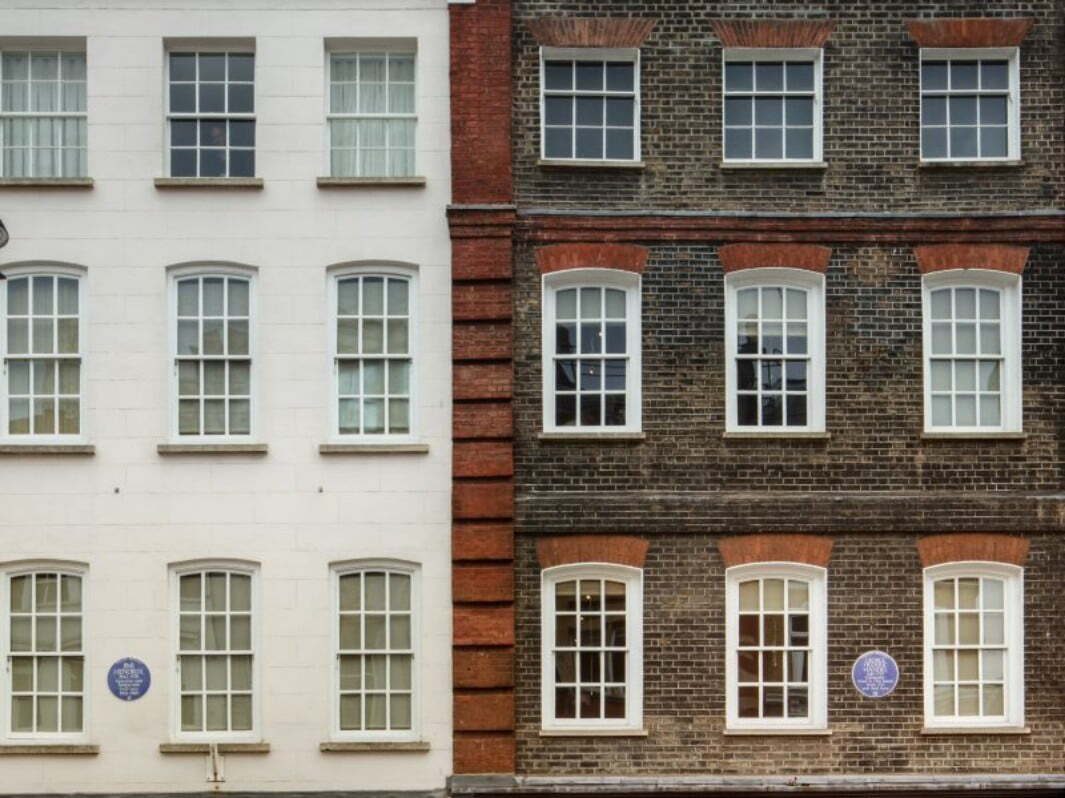EZIO (HWV 29)
Libretto: Unknown, after Pietro Metastasio
First performance: 15th January 1732, King's Theatre, London
Cast
- Francesco Bernardi, called "Senesino" (Alto-castrato)
- Anna Maria Strada del Pò (Soprano)
- Anna Bagnolesi (Contralto)
- Francesca Bertolli (Contralto)
- Giovanni Battista Pinacci (Tenor)
- Antonio Montagnana (Bass)

Synopsis
The historical basis of the libretto is the rivalry between Valentiniano, the supreme head of the Western Empire, and his general Ezio, who defeated Attila at the Battle of the Catalaunian Plains in AD 451 and rescued the Roman Empire from the invading Huns.
Act I
Handel’s opera begins at the point where Ezio is received in the Roman Forum by Emperor Valentiniano following his victory over Attila. Valentiniano praises his general’s abilities and assures him of his undying affection.
Valentiniano leaves. Massimo, a patrician who is one of the emperor’s favourites, enters with his daughter Fulvia. She is promised in marriage to Ezio and returns his love. But Massimo tells Ezio that the emperor wants to marry Fulvia. He has no way of dealing with the tyrant, unless Ezio agrees to kill Valentiniano. In this way Massimo secretly hopes to make the general the agent of his own revenge, for Valentiniano had once impugned his wife’s honour. But Ezio is not prepared to become a traitor. He trusts in his merits and in the emperor’s gratitude.
As soon as they are alone together, Fulvia calls her father to account and reproaches him for making her the plaything of his own ambitions: first he promises her to Ezio, then he orders her to submit to the emperor’s advances. Massimo observes that as the emperor’s wife she will have an opportunity to kill Valentiniano, an observation that fills her with disgust. She reminds her father of his honour. Left alone, Massimo sees himself obliged to change his plans: since neither Ezio nor Fulvia is willing to murder the emperor, his servant Emilio will have to do so. If the attempt fails, he will ensure that suspicion for the deed falls on Ezio.
In the royal apartments, Valentiniano’s sister Onoria questions Varo, prefect of the imperial guard, about Ezio. It is clear from her enquiries that in spite of their difference in social rank, she secretly loves the general.
Valentiniano summons Ezio, whose growing fame makes him uneasy. Massimo fuels the emperor’s mistrust of his general. Valentiniano offers Ezio Onoria’s hand in marriage, an offer ostensibly motivated by gratitude but in fact designed to remind Ezio of his duty. Ezio confesses to loving Fulvia. Valentiniano gives Ezio to understand that they are rivals, causing Ezio to react defiantly. But the emperor puts him firmly in his place.
Onoria announces that the emperor plans to take Fulvia as his wife the very next day. Faced by such contempt, Ezio feels his loyalty ebbing away. Fired by anger, he threatens revenge.

Act II
In the palace gardens at dawn, Massimo awaits news of Emilio, who was to murder the emperor that very night. Fulvia enters and reports that an attempt has been made on the emperor’s life. She is certain that the attack was instigated by Massimo and urges him to flee. Valentiniano is unharmed. He has recognized Emilio as his attacker but believes that it was Ezio who planned the conspiracy, a belief confirmed by Massimo. Valentiniano now counts entirely on Massimo’s help and on Fulvia’s love.
Left alone with Massimo, Fulvia is appalled that he could accuse Ezio against his better judgement. She is ready to repudiate her father unless he is willing to abandon his goals. Before he leaves, Massimo reminds his daughter that his life is in her hands. Fulvia is helpless in the face of such a dilemma. If she speaks out, she will cause her father’s death, whereas if she says nothing, her lover will die. Ezio enters, all unsuspecting, on his way to help the emperor. She urges him to flee, but Ezio is confident that, being innocent, he has nothing to fear. Varo enters and in the name of the emperor relieves his old friend of his sword. Ezio is then led away by guards. Varo advises Fulvia to pretend that she is in love with the emperor in order that once she is married to Valentiniano she may be able to save Ezio.
In the palace Onoria tells Maximus that in spite of all the evidence to the contrary she cannot believe that Ezio is guilty. Valentiniano enters and informs Onoria that Attila wants to marry her. Onoria will decide only when Ezio has spoken. She leaves. Fulvia and Valentiniano await the captured Ezio. In reply to Ezio’s question, the emperor declares that together with his future wife Fulvia he himself will judge the accused. Faced with Fulvia’s apparent infidelity, Ezio throws caution to the winds and accuses the emperor of stealing his lover. Fulvia initially shows great stoicism in insisting that she loves Valentiniano but in the end her strength fails her and she admits to loving only Ezio. The enraged emperor orders Ezio to be thrown into prison and together with Massimo leaves the room. Ezio is afraid of neither imprisonment nor death but is happy to possess Fulvia’s love. In his thoughts he asks his lover to forgive him for his doubts.

Act III
Onoria visits Ezio in his prison cell, bringing with her an offer from her brother: Ezio will be set free if he reveals details of the conspiracy. Ezio insists on his innocence: he would rather die than humiliate himself in this way. Stunned, Onoria declares that he should at least remain alive for her sake because she loves him. Ezio tells her that he loves another and that he is prepared to suffer the emperor’s undeserved punishment.
Onoria reports back to the emperor on her abortive conversation with Ezio. She advises Valentiniano to adopt a more magnanimous approach and to leave Fulvia to make him see reason. Valentiniano agrees. He orders Varo to have Ezio killed if on his return Ezio is not accompanied by Varo himself. Massimo enters and insists that Ezio be killed. Ezio is brought in chains, and Valentiniano then sends for Fulvia. He is prepared to reunite the couple if Ezio tells him about the conspiracy. Ezio immediately turns to leave, whereupon Valentiniano gives order for the prisoner to be released, declaring that he now believes in his general’s innocence. Overcome by gratitude, Ezio leaves.
Events now follow hard on each other’s heels. Varo enters to announce that Ezio has been killed in keeping with the emperor’s orders, only to be followed by Onoria, who reports that Emilio, severely wounded in the attack, has admitted with his dying breath that Ezio is innocent. All the evidence points to Massimo, but in order to save her father, Fulvia claims that she herself is the guilty party. Weary of life, Valentiniano turns away. In the space of a single day he has lost hope, peace, his lover and his friend. Fulvia realizes that her father is the source of all her unhappiness, so that when he tries to express his gratitude, she thrusts him aside. Massimo remains determined to punish the emperor for the insult that he has suffered at his hands.
On the Capitol, Massimo incites the people of Rome to avenge the death of Ezio and free the city from its tyrannical ruler. Valentiniano enters, defenceless and in search of help. Massimo attempts to kill him, but Fulvia throws herself between them in order to protect the emperor. Varo and Ezio then enter, Varo having merely pretended that Ezio was dead. They free Valentiniano from the desperate situation in which he finds himself. The emperor sees that he has acted wrongly and expresses remorse for his actions. At Ezio’s request he spares Massimo’s life. Ezio and Fulvia are finally united, and all join in praising the lovers’ fidelity, which has proved itself even in suffering.
Reinhard Lüthje
(Translation: Stewart Spencer)
© 2009 Deutsche Grammophon GmbH, Hamburg
Context
Ezio would be the last of the great Metastasio’s libretti that Handel would set to music. He had used the words of Europe’s most famous librettist on two previous ocassions (Siroe in 1726 and Poro in 1729), and would go on to construct four pasticcios, using other composer’s music, in the coming years based on other Metastasio texts. Handel had probably picked up a copy of the Ezio libretto when he was in Rome in 1728, and the version he used is remarkably close to the original libretto as set by Pietro Auletta at that time. Indeed, the few changes made in preparing the libretto for Handel’s use suggest that he might have made the adaptation himself, dropping only four of the original arias. The most significant alteration was the cutting of some 900 lines of recitative in deference to the London audeince’s taste for faster moving plots with less filling between the arias. At one moment, however, this cutting leads to an unfortunate inconsistency, as in Act III Ezio’s death is reported by Varo only moments after he has left the stage. Handel had cut some 17 lines of recitative at this point, reducing Varo’s report to only 3 lines.
The most significant cut that the composer made was to an introductory scene in Metastasio’s libretto, preferring to go straight from the overture into the first scene depicting Ezio’s triumphal arrival. This allows him to substitute the usual dance movement of the overture with a stirring march, blending for the first time his instrumental introduction directly into the story of the opera. Also notable in the musical elements is the total absence of any ensemble singing – there are no duets or choruses apart from a few brief lines at the very end. Metastasio’s rigidly structured libretto allowed for a single aria in each scene, the required exit aria for each singer, and characterisation built around individual vocal display.
Handel introduced a number of new singers to London for this season. The tenor Giovanni Battista Pinacci was one of Europe’s most accomplished tenors, and his wife the contralto Anna Bagnolesi joined him in London. They both took key roles in Ezio. The bass Antonio Montagnana was at the height of his career when he came to London in 1731, and Handel was to create important new roles for him in the following seasons, as well as re-writing many roles in revivals to accommodate his extraordinary vocal abilities and range.
Ezio was Handel’s least popular opera thus far, managing to hold the stage for only five performances. ‘Colman’s Opera Register’ recorded: ‘In Janry Ezia – a New Opera, Clothes & all ye Scenes New – but did not draw much Company’. King George, however, continued to show his support for Handel by attending four of the five, missing only the first night on 15th January. For the second performance on 18th January, and the last on 29th January he was accompanied by the Royal family. Ezio was never revived in Handel’s lifetime.


